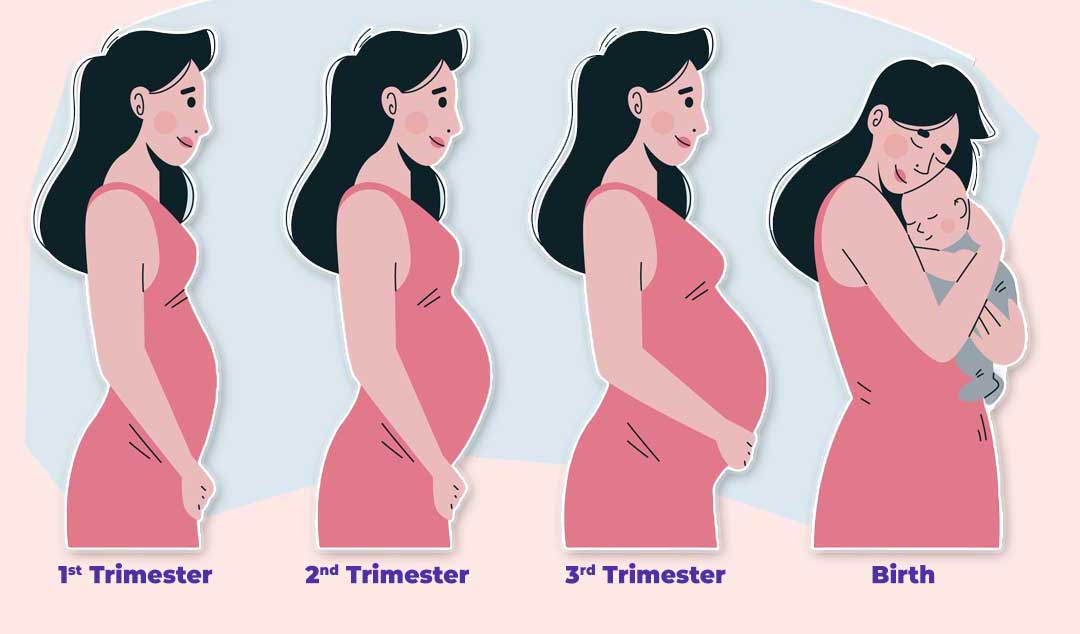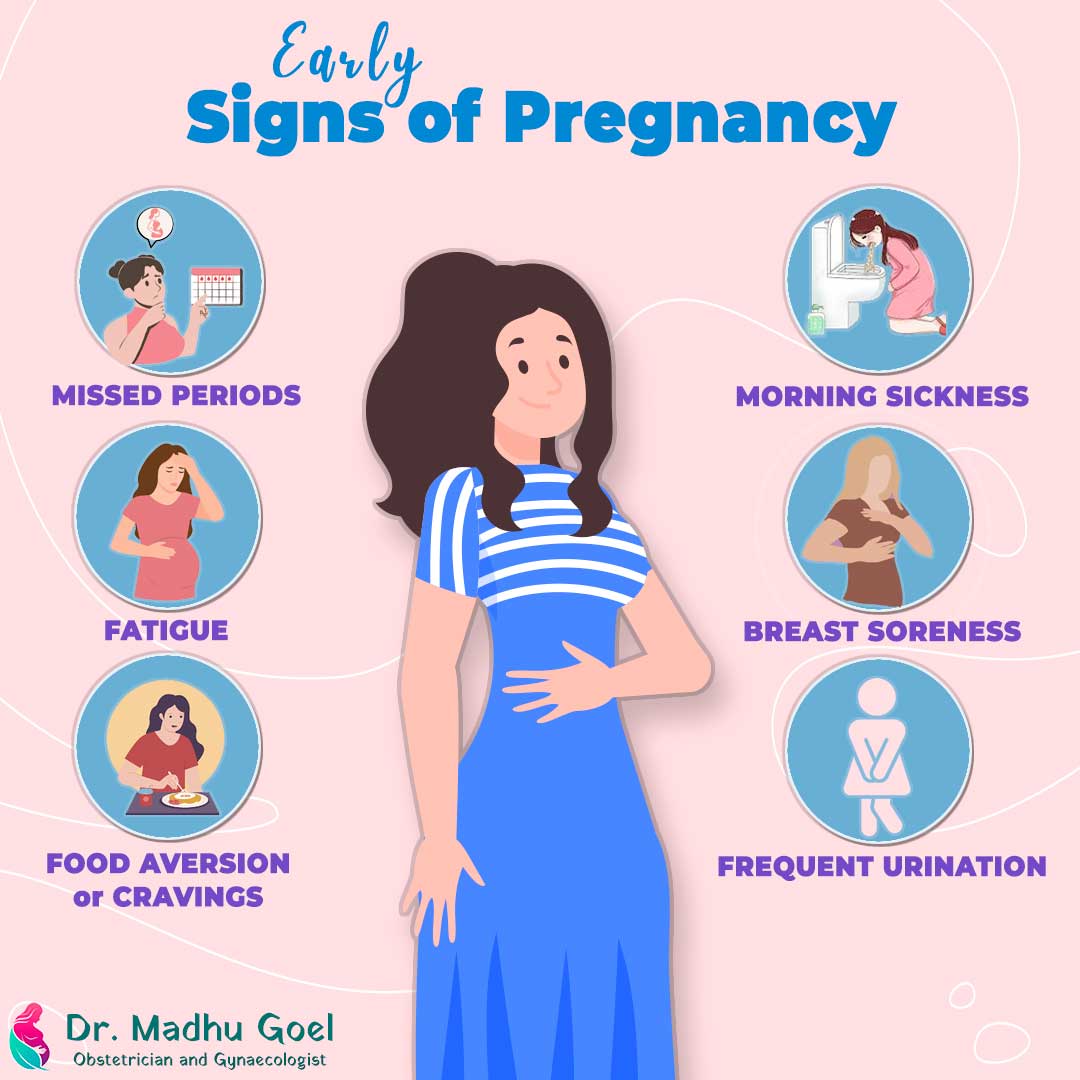Navigating the First Trimester: Your Body, Your Baby
Congratulations! You’re pregnant. These incredible 1st trimester pregnancy signs bring a wave of emotions: excitement, anticipation, and maybe a touch of nervousness. The first Trimester of pregnancy is a whirlwind of physical and emotional changes for you and your developing baby.
In this guide, we’ll explore pregnancy and doctor visits, foetal development, and maternal changes from understanding your body’s amazing transformations to creating a nurturing environment for your little one to thrive.
We’ll cover early signs of pregnancy in the first Trimester. Also offer tips for managing them. The essential coping strategies and information on prenatal care to ensure a healthy start to your pregnancy.
So, please take a deep breath, embrace the adventure, and let’s navigate this exciting first Trimester together.
Also Read:
- Pregnant With Triplets: A Realistic Look At Triplet Pregnancy And Parenting
- First Trimester: Strategies For Common Pregnancy Symptoms
- The First Trimester: Understanding The Early Stages Of Pregnancy
- Early Pregnancy: Strategies for Common Pregnancy Symptoms
Understanding Human Pregnancy Stages
Fetal development and maternal changes during pregnancy are dynamic processes. It involves significant growth, adaptation, and preparation for childbirth. Human pregnancy is an extraordinary journey that starts with fertilization and ends with the birth of a baby. This journey is divided into three stages, called trimesters, each with its specific developments and challenges.
- 1st Trimester (Conception to 14 Weeks): The placenta forms, providing essential nutrients to the developing embryo. By the 8th week, critical organs and structures such as the heart, liver, and eyes begin to take shape.
- 2nd Trimester (14 to 28 Weeks): This stage is characterized by noticeable fetal movements and further organ development. The fetus grows to about 30 cm in length, and the placenta maintains the exchange of nutrients and waste products.
- 3rd Trimester (28 to 42 Weeks): The final Trimester involves significant fetal growth, with the fetus reaching approximately 50 cm in length. Organ development continues, and expectant mothers may experience increased discomfort due to the growing baby’s pressure on the bladder.

Understanding the stages of pregnancy is vital for expectant mothers and their families. Each Trimester brings its own set of experiences and milestones, culminating in the incredible event of childbirth.
Prenatal Care: Pregnancy and Doctor Visits
Prenatal care is critical to ensuring a healthy pregnancy, particularly during the first trimester when many significant developments occur. These early visits to your healthcare provider are essential for monitoring your health and the growth of your baby. By understanding what to expect during these appointments, you can be better prepared and more confident throughout your pregnancy journey.
The 1st Visit
When you find out you’re pregnant, schedule your first prenatal appointment. This visit involves a comprehensive overview of your medical history, lifestyle, and any potential risk factors.
- Medical history: Your healthcare provider will ask about your menstrual cycle, gynecological history, family history of infertility, past pregnancies, personal and family medical history, exposure to toxins, medications, and lifestyle habits.
- Due date: Your due date, calculated based on the first day of your last period, helps monitor your baby’s growth and schedule necessary tests and procedures
- Physical exam: This includes measuring your weight, height, and BMI, performing breast and pelvic exams, possibly a Pap test, and examining your heart, lungs, and thyroid.
- Lab tests: Blood tests will determine your blood type, hemoglobin levels, immunity to certain infections, and exposure to diseases like hepatitis B, syphilis, gonorrhea, chlamydia, and HIV. A urine sample might also be tested.
- Viral Markers Test: Testing for viral markers is a crucial part of prenatal care. Aimed at detecting infections that could affect your pregnancy and your baby’s health.
- Rubella Test: This test determines immunity to rubella, which is crucial to prevent congenital rubella syndrome, which can cause severe birth defects.
The first visit is thorough to ensure your healthcare provider has all the necessary information to care for you and your baby throughout the pregnancy.
Tests for Foetal Concerns
Prenatal tests during the first Trimester provide valuable information about your baby’s health and development.
- Prenatal genetic screening: These tests, including ultrasounds and blood tests, check for fetal genetic problems
- Early detection: Identifying potential issues early on allows for better planning and management.
Discuss with your healthcare provider which tests are recommended for you and understand the purpose and implications of each.
More Appoints During Pregnancy
After the initial visit, your first-trimester prenatal appointments are usually scheduled every four weeks and might be shorter.
- Heartbeat check: By 12 to 14 weeks, you might hear your baby’s heartbeat using a Doppler
- Ultrasound: A first-trimester ultrasound may be offered to check on your baby’s development.
These visits are an opportunity to address any concerns and receive reassurance about your baby’s progress. For peace of mind, always know how to reach your healthcare team between appointments.
First Trimester Pregnancy Signs
Are you wondering if you might be pregnant? Recognising the first trimester pregnancy signs can help you understand the changes in your body and take the necessary steps for a healthy pregnancy.

Symptoms:
- Missed Period: Often the first noticeable sign, though some women may experience light bleeding.
- Morning Sickness: Nausea and vomiting, typically in the morning, but can occur at any time.
- Fatigue: Feeling unusually tired is expected due to the body’s increased effort in early pregnancy.
- Breast Soreness: Swollen and tender breasts are a typical early symptom.
- Frequent Urination: Hormonal changes increase the need to urinate more often.
- Food Aversions or Cravings: Changes in taste and smell can lead to solid likes or dislikes
- Mood Swings: Hormonal fluctuations can cause emotional ups and downs.
- Headaches: Increased blood circulation and hormonal changes can trigger headaches.
- Dizziness or Fainting: Changes in blood pressure and circulation may cause these symptoms
- Constipation: Slowed digestion and hormonal changes can lead to constipation.
Consult your obstetrician for more information. They can guide you with the proper tests and provide advice on the best course of action for your situation. Understanding these early signs can help you take proactive steps for a healthy pregnancy.
Conquering 1st trimester Pregnancy Signs: Tips for a Alleviating Discomforts
The 1st trimester pregnancy signs can be a whirlwind of emotions and experiences. While it’s a beautiful time, it can also come with some uncomfortable symptoms. Here are some tips to help you manage common early pregnancy discomforts:
Taming Nausea and Vomiting:
- Hydration Hero: Dehydration can worsen nausea. Sip water or clear fluids throughout the day to stay hydrated.
- Small Bites, Big Help: Don’t let your stomach get empty. Eat small, frequent meals and snacks rich in bland carbohydrates, such as crackers or toast.
- Ginger’s Magic Touch: Ginger is a natural nausea soother. Try ginger tea, sucking on ginger candies, or incorporating ginger into your meals.
- Rest: Listen to your body! Fatigue can aggravate nausea, so prioritize rest when needed.

Soothing Breast Tenderness:
- Supportive Comfort: Invest in a well-fitting, supportive bra that lifts and minimizes pressure on your breasts. Choose soft, comfortable fabrics and avoid underwires.
- Cold Compress Relief: Apply a cold compress wrapped in a towel to numb soreness and reduce breast sensitivity.
Combating Constipation and Bloating:
- Fiber is Your Friend: Constipation and bloating are common pregnancy woes. Include plenty of fiber-rich fruits, vegetables, and whole grains in your diet.
- Hydration Matters: Drinking plenty of water helps soften stool and prevent constipation.
- Gentle Movement: Regular exercise can help regulate digestion and ease bloating. Consider gentle walks or prenatal yoga.
Remember: These are just general tips. Consult your healthcare provider for personalized advice on managing any pregnancy discomfort. They can recommend additional strategies or safe medications if needed. With a bit of planning and self-care, you can conquer these early pregnancy discomforts and enjoy a smoother first trimester.
Also Read:
- Welcoming the Second Trimester of Pregnancy: All You Need to Know
- Second Trimester Symptoms: What to Expect and How to Ensure a Healthy Pregnancy
Conclusion
So there you have it—1st Trimester pregnancy signs, a breakdown of what to expect in those first few months when you’re expecting. While every pregnancy is different, knowing the common changes your body and baby are going through can help you feel more prepared and empowered.
Plan your pregnancy and doctor visits. Trust your instincts, listen to your body, and don’t be afraid to ask your provider questions. This is an exciting time, with fetal development, maternal changes, and new aches, pains, and worries. Take the coping strategies one day at a time. Get the prenatal care and nutrition you need. Try to soak up all the little moments along the way.
The troubles of the pregnancy trimester will pass, and before you know it, you’ll be holding your sweet baby in your arms. Enjoy the journey!
Our Digital Imprints:
Dr. Madhu Goel
Senior Consultant Obstetrician and Gynaecologist
Director, Fortis La Femme
I am passionate about women’s health. With expertise in managing high-risk pregnancies, infertility, and various gynaecological issues, I strive to provide compassionate care. I am committed to ensuring the well-being of my patients. Follow me for insights and updates on women’s health.
Get Connected to my Newsletter
“Health Hub”: Women’s Health & Wellness



